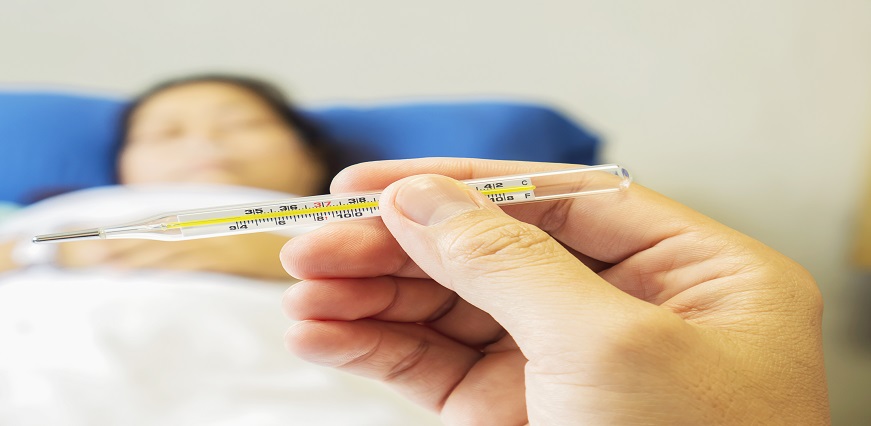





No lab centers are available in this city

Max Lab
Jan 22, 2024
The thyroid gland is a butterfly-shaped organ that is located at the base of the neck. It plays a crucial role in one’s overall health, regulating various bodily functions. The gland’s primary responsibility is to produce hormones, primarily, thyroxine (T4) and triiodothyronine (T3), which influence metabolism, growth, and energy levels in one’s body. Thyroid Peroxidase, or TPO, is an enzyme that is found in the thyroid gland, which affects the production of the thyroxine (T3) and triiodothyronine (T4) hormones.
Antibodies are proteins produced by the immune system to defend the body against harmful substances, such as viruses and bacteria. However, in some cases, the immune system can mistakenly identify the body's own tissues as foreign invaders, which may lead to autoimmune disorders.
Thyroid peroxidase antibodies or TPO antibodies are a specific type of antibody that targets the thyroid peroxidase enzyme found in thyroid cells. These antibodies protect the thyroid gland by attacking the damaged cells. However, when the antibodies start attacking healthy tissues and the thyroid peroxidase enzyme, it may lead to autoimmune disorders such as Grave’s Disease or Hashimoto’s Thyroiditis. Such conditions may adversely affect the functioning of the thyroid gland as well.
High levels of TPO antibodies may be caused by a number of factors. Their presence in the body is most commonly associated with two autoimmune conditions associated with the thyroid gland, namely:
Also known as Basedow’s disease, Grave’s Disease is an autoimmune disorder that occurs when the thyroid gland produces excessive amounts of thyroid hormones, resulting in hyperthyroidism.
Hashimoto’s Thyroiditis or Hashimoto’s Disease is another condition in which the body’s immune system attacks the thyroid gland. As opposed to Grave’s Disease, in Hashimoto’s Disease, the thyroid gland does not produce enough hormones, which may lead to hypothyroidism.
Further, an imbalance in hormone levels may also lead to high TPO antibody levels.
It is important to note that it is not always an autoimmune disease that can lead to high TPO antibody levels in the body. However, those with high antibody levels may be at a higher risk of developing autoimmune diseases in the future.
The anti TPO test is performed to measure the levels of thyroid peroxidase antibodies. The full form of anti TPO is anti-thyroid peroxidase. Usually, the level of thyroid peroxidase antibodies is low in the body. Elevated TPO antibody levels may indicate the presence of an autoimmune disease, which may lead to swelling and tenderness around the throat, reduced function of the thyroid gland, and an imbalance in hormone levels. Also known as the anti-thyroid AB test, this test aids in the diagnosis and monitoring of autoimmune thyroid conditions. The price of the anti TPO antibody test may vary from one diagnostics centre to the other, but at the time of booking the test, it is important to ensure that one only chooses an NABL-accredited lab for their test.
There may be several reasons for prescribing the anti TPO test, especially if one is displaying symptoms associated with Graves’ or Hashimoto’s Disease.
Common Symptoms of Graves’ Disease
Common Symptoms of Hashimoto’s Thyroiditis
Expecting mothers who have a history of thyroid-related issues or have family members who have had thyroid-related issues may also be prescribed to undergo the test. This is done to monitor the level of antibodies in the blood and prevent any risks that may occur during childbirth.
Further, if one has already been diagnosed with hypothyroidism or hyperthyroidism, their healthcare practitioner may prescribe the anti TPO test to check for any underlying causes. In such cases, the anti TPO test helps to diagnose or rule out autoimmune diseases.
One’s family history, past medical records, and symptoms are some of the factors that doctors take into consideration before prescribing the anti TPO test. Additionally, other tests such as the thyroid stimulating hormone (TSH) and T3 or T4 tests may also be prescribed along with it.
After undergoing the test, the reports are generally generated within 24 hours. The results of the test will help determine the presence of thyroid peroxidase antibodies in the blood. If there are no antibodies in the blood or the levels of thyroid peroxidase antibodies are within the normal range of the Anti TPO test, then the result is negative.
However, if the report shows an increased number of antibodies in the blood, then the result is positive. This may indicate an autoimmune disease such as Graves’ Disease or Hashimoto’s Thyroiditis, which might disrupt the functioning of the thyroid gland. However, it is important to take the report to one’s doctor for a proper prognosis, so they can diagnose the issue, create a treatment plan, or prescribe further tests, if required.
The anti TPO test is an important diagnostic tool that can guide healthcare professionals in managing and addressing conditions related to the thyroid gland. Understanding how the thyroid gland works, the role of antibodies, and the importance of diagnostic tests and timely medical intervention can help mitigate health risks, helping improve one’s overall well-being.
It is crucial to remember that although the presence of thyroid peroxidase antibodies may indicate that the thyroid gland is being attacked, it does not necessarily translate to autoimmune diseases or conditions, such as hypothyroidism or hyperthyroidism.












Sign up takes less than 60 secs and gives you access to your offers, orders and lab tests.
Looks like you are not registered with us. Please Sign up to proceed
OTP will be sent to this number by SMS
We have successfully received your details. One of the agents will call you back soon.
 To reach our help desk call 9213188888
To reach our help desk call 9213188888
No Lab Centers are available in this city
Looks like you are not registered with us. Please Sign up to proceed
OTP will be sent to this number by SMS
Not Registered Yet? Signup now.Looks like you are not registered with us. Please Sign up to proceed





 7982100200
7982100200.png)
Comments